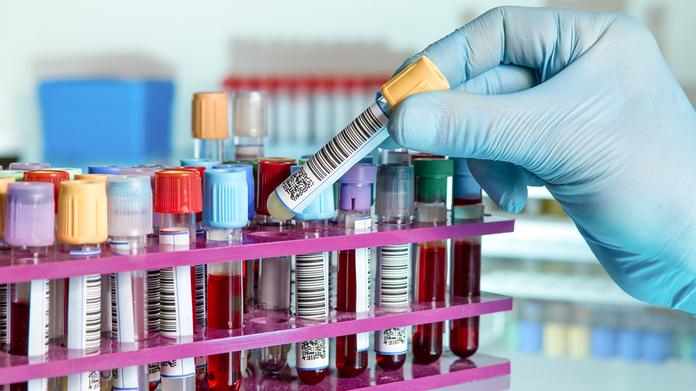All About Cancer Screening and DNA Tests: Understanding Your Risk and Diagnosis

Detecting cancer early or assessing your genetic predisposition can be life-saving. Modern cancer checks go beyond routine scans and blood work; advanced testing methods, such as DNA tests, can uncover hidden risks or determine whether you currently have cancer. Whether you have a family history of cancer or are simply proactive about your health, these tests can provide invaluable insights and guide your health decisions.
What Are Cancer Screening and DNA Tests?
Cancer screening tests are designed to catch cancer in its early stages, often before symptoms develop. They include various methods like imaging (MRI, CT scans), blood tests, and biopsy procedures. But in recent years, DNA and genetic testing have emerged as a game-changer. These tests analyze specific genes to identify inherited mutations that may increase your risk of developing certain types of cancer, such as breast, ovarian, or colorectal cancer.
Types of Cancer Checks Include:
- - Genetic Risk Assessment: Detects inherited gene mutations (e.g., BRCA1/BRCA2 for breast cancer).
- - Liquid Biopsies: A blood test that identifies cancer cells or DNA fragments shed by tumors.
- - Imaging Tests: MRI, CT scans, and mammograms for internal organ checks.
- - Biomarker Blood Tests: Measures specific proteins or substances linked to cancer (e.g., PSA for prostate cancer).
Why Get Cancer Screening or a DNA Test?
Early detection of cancer can significantly improve outcomes and treatment options. Some benefits include:
- - Identifying Risk Early: Genetic tests can show if you are at a higher risk for certain cancers due to inherited mutations.
- - Guiding Preventative Measures: Knowledge of your risk level can lead to preventative options like increased monitoring, lifestyle changes, or even surgery.
- - Monitoring for Recurrence: Liquid biopsies can help track whether cancer has returned after treatment.
- - Personalized Treatment Plans: Genetic markers help doctors customize treatment based on your unique genetic profile.
What to Expect During a Cancer Check
The process varies depending on the type of test:
- - Genetic Testing: A small blood or saliva sample is taken and sent to a lab for analysis. Results typically take a few weeks.
- - Imaging Tests: Non-invasive scans are conducted using MRI, CT, or ultrasound technology.
- - Liquid Biopsies: A blood sample is analyzed for traces of cancerous DNA or cells.
- - Biopsies: In some cases, a tissue sample may be taken for detailed microscopic examination.
- It’s crucial to consult a healthcare professional who can recommend the most appropriate tests based on your medical history and risk factors.
Are DNA Cancer Tests Right for You?
DNA testing can be useful if you:
- - Have a family history of cancer (e.g., breast, ovarian, or colon cancer).
- - Are of Ashkenazi Jewish descent, as this group has a higher prevalence of certain genetic mutations.
- - Have had multiple primary cancers, indicating a potential genetic component.
- - Want to guide future health decisions and assess risk for yourself or your family members.
However, it’s important to approach these tests with the guidance of a healthcare professional to ensure you understand the implications of the results and what steps to take next.
Understanding the UK Rules for Genetic Testing and Cancer Screening
In the UK, genetic testing for cancer risk is usually available through the NHS for individuals with a strong family history. This includes tests for genes like BRCA1 and BRCA2. For other tests, such as comprehensive DNA testing or liquid biopsies, you may need to go through private clinics. Cancer screening programs, like mammograms for breast cancer or smear tests for cervical cancer, are also part of the NHS’s routine preventive care for certain age groups.
Choosing the Right Cancer Screening on CompareHealth
At CompareHealth, we connect you to leading clinics and healthcare providers in the UK who specialize in cancer screening and genetic testing. Use our platform to:
- Find Clinics That Offer Genetic Cancer Testing: Search by location and service type to find reputable providers near you.
- Compare Cancer Screening Options: View pricing, service details, and availability for everything from genetic risk assessments to imaging and liquid biopsies.
- Book Appointments Online: Easily book consultations and follow-up appointments directly through CompareHealth.
Types of Cancer Checks Available on CompareHealth
- - BRCA Genetic Testing: Assesses your risk for breast and ovarian cancer.
- - Comprehensive DNA Cancer Panels: Evaluates multiple genes linked to various cancers.
- - Full Body MRI Scans: Detects tumors or abnormalities throughout the body.
- - Liquid Biopsies: A blood test to identify cancerous cells or DNA, even in early stages.
- - Lung Cancer Screening: Low-dose CT scans for individuals at high risk.
- - Colorectal Cancer Screening: Using colonoscopy, stool tests, and genetic markers.
Article References
National Health Service (NHS) - Cancer Screening Programmes
The NHS provides routine cancer screening for breast, cervical, and bowel cancers. They also offer genetic testing for hereditary cancers like BRCA mutations if there is a family history of cancer.
Website: NHS Cancer Screening Programmes
Cancer Research UK - Genetic Testing and Screening
This resource provides comprehensive information on cancer screening and genetic testing options, including the availability of liquid biopsies and DNA tests in the UK.
Website: Cancer Research UK - Genetic Testing
National Institute for Health and Care Excellence (NICE) - Guidance on Cancer Diagnostics
NICE offers detailed guidance on the use of advanced diagnostic tests such as liquid biopsies and genetic testing for cancer risk, along with recommendations for routine cancer screening.
Website: NICE - Cancer Diagnostics Guidance
We include references at the end of every article, so you know where we get our facts. We only ever take evidence from medically-recognised sources, approved by the UK National Health Service's The Information Standard, or certified by Health On the Net (HON). When we talk about popular health trends or claims, we'll always tell you if there's very little or no evidence to back them up. Our medical team also checks our sources, making sure they're appropriate and that we've interpreted the science correctly.


Name of test: TruCheck Early Cancer Screening Blood Test
What does it test for: Prostate Cancer | Ovarian Cancer | Lung Cancer | Breast Cancer | Skin Cancer | Thyroid Cancer | Liver Cancer | Cervical Cancer | Bowel Cancer | Uterine (Endometrial) Cancer | Pancreatic Cancer
Description: Descriptionn: In-clinic blood test capable of detecting signs of up to 70 different cancers
Price breakdown: Price breakdown Test cost: £1199 | Clinic fee: Included | Postage: Free | GP Appointment: Included (Telephone)


Name of test: TruCheck Early Cancer Screening Blood Test
What does it test for: Prostate Cancer | Ovarian Cancer | Lung Cancer | Breast Cancer | Skin Cancer | Thyroid Cancer | Liver Cancer | Cervical Cancer | Bowel Cancer | Uterine (Endometrial) Cancer | Pancreatic Cancer
Description: Descriptionn: In-clinic blood test capable of detecting signs of up to 70 different cancers
Price breakdown: Price breakdown Test cost: £1199 | Clinic fee: Included | Postage: Free | GP Appointment: Included (Telephone)


Name of test: Genetic Cancer Risk
What does it test for: Prostate Cancer | Ovarian Cancer | Lung Cancer | Breast Cancer | Skin Cancer | Thyroid Cancer | Liver Cancer | Cervical Cancer | Bowel Cancer | Uterine (Endometrial) Cancer | Pancreatic Cancer
Description: In-clinic genetic blood test analysing 94 different genes which can increase the risk of developing cancer in the future. Suitable for those who have a family history of cancer diagnosis
Price breakdown: Price breakdown Test cost: £750 | Clinic fee: Included | Postage: N/A | GP Appointment: Included


Name of test: Core Genetic Cancer RIsk
What does it test for: Prostate Cancer | Ovarian Cancer | Lung Cancer | Breast Cancer | Skin Cancer | Thyroid Cancer | Liver Cancer | Cervical Cancer | Bowel Cancer | Uterine (Endometrial) Cancer | Pancreatic Cancer
Description: In-clinic hereditary cancer genetic risk test. This test covers 29 different genes associated with a broad range of cancers
Price breakdown: Price breakdown Test cost: £680 | Clinic fee: Included | Postage: N/A | GP Appointment: Included


Name of test: TruCheck Early Cancer Screening Blood Test
What does it test for: Prostate Cancer | Ovarian Cancer | Lung Cancer | Breast Cancer | Skin Cancer | Thyroid Cancer | Liver Cancer | Cervical Cancer | Bowel Cancer | Uterine (Endometrial) Cancer | Pancreatic Cancer
Description: Descriptionn: In-clinic blood test capable of detecting signs of up to 70 different cancers
Price breakdown: Price breakdown Test cost: £1199 | Clinic fee: Included | Postage: Free | GP Appointment: Included (Telephone)


Name of test: TruCheck Early Cancer Screening Blood Test
What does it test for: Prostate Cancer | Ovarian Cancer | Lung Cancer | Breast Cancer | Skin Cancer | Thyroid Cancer | Liver Cancer | Cervical Cancer | Bowel Cancer | Uterine (Endometrial) Cancer | Pancreatic Cancer
Description: Descriptionn: In-clinic blood test capable of detecting signs of up to 70 different cancers
Price breakdown: Price breakdown Test cost: £1199 | Clinic fee: Included | Postage: Free | GP Appointment: Included (Telephone)


Name of test: Genetic Cancer Risk
What does it test for: Prostate Cancer | Ovarian Cancer | Lung Cancer | Breast Cancer | Skin Cancer | Thyroid Cancer | Liver Cancer | Cervical Cancer | Bowel Cancer | Uterine (Endometrial) Cancer | Pancreatic Cancer
Description: In-clinic genetic blood test analysing 94 different genes which can increase the risk of developing cancer in the future. Suitable for those who have a family history of cancer diagnosis
Price breakdown: Price breakdown Test cost: £750 | Clinic fee: Included | Postage: N/A | GP Appointment: Included


Name of test: Core Genetic Cancer RIsk
What does it test for: Prostate Cancer | Ovarian Cancer | Lung Cancer | Breast Cancer | Skin Cancer | Thyroid Cancer | Liver Cancer | Cervical Cancer | Bowel Cancer | Uterine (Endometrial) Cancer | Pancreatic Cancer
Description: In-clinic hereditary cancer genetic risk test. This test covers 29 different genes associated with a broad range of cancers
Price breakdown: Price breakdown Test cost: £680 | Clinic fee: Included | Postage: N/A | GP Appointment: Included


Name of test: TruCheck Early Cancer Screening Blood Test
What does it test for: Prostate Cancer | Ovarian Cancer | Lung Cancer | Breast Cancer | Skin Cancer | Thyroid Cancer | Liver Cancer | Cervical Cancer | Bowel Cancer | Uterine (Endometrial) Cancer | Pancreatic Cancer
Description: Descriptionn: In-clinic blood test capable of detecting signs of up to 70 different cancers
Price breakdown: Price breakdown Test cost: £1199 | Clinic fee: Included | Postage: Free | GP Appointment: Included (Telephone)


Name of test: TruCheck Early Cancer Screening Blood Test
What does it test for: Prostate Cancer | Ovarian Cancer | Lung Cancer | Breast Cancer | Skin Cancer | Thyroid Cancer | Liver Cancer | Cervical Cancer | Bowel Cancer | Uterine (Endometrial) Cancer | Pancreatic Cancer
Description: Descriptionn: In-clinic blood test capable of detecting signs of up to 70 different cancers
Price breakdown: Price breakdown Test cost: £1199 | Clinic fee: Included | Postage: Free | GP Appointment: Included (Telephone)
